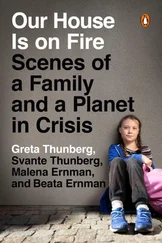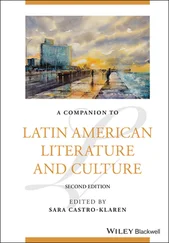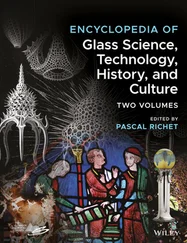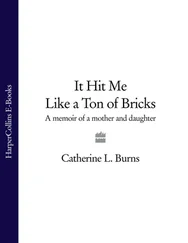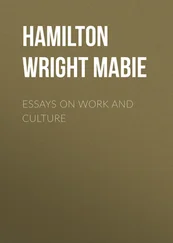I was near Ford’s Theatre, the historic location where John Wilkes Booth shot Abraham Lincoln. About half a block from the theater is a corner store that sells Lincoln memorabilia. In it, a large Lincoln blow-up doll with an extraordinarily large grin gazes at those walking by. I felt like this inflatable Lincoln was mocking me. Why the hell is he smiling? I thought. Lincoln was melancholy to begin with, and if any place invoked a smile, surely it wouldn’t be a stone’s throw away from the place where someone shot him in the head.
I turned the corner, and after a few steps I saw Usha sitting on the steps of Ford’s Theatre. She had run after me, worried about me being alone. I realized then that I had a problem—that I must confront whatever it was that had, for generations, caused those in my family to hurt those whom they loved. I apologized profusely to Usha. I expected her to tell me to go fuck myself, that it would take days to make up for what I’d done, that I was a terrible person. A sincere apology is a surrender, and when someone surrenders, you go in for the kill. But Usha wasn’t interested in that. She calmly told me through her tears that it was never acceptable to run away, that she was worried, and that I had to learn how to talk to her. And then she gave me a hug and told me that she accepted my apology and was glad I was okay. That was the end of it.
Usha hadn’t learned how to fight in the hillbilly school of hard knocks. The first time I visited her family for Thanksgiving, I was amazed at the lack of drama. Usha’s mother didn’t complain about her father behind his back. There were no suggestions that good family friends were liars or backstabbers, no angry exchanges between a man’s wife and the same man’s sister. Usha’s parents seemed to genuinely like her grandmother and spoke of their siblings with love. When I asked her father about a relatively estranged family member, I expected to hear a rant about character flaws. What I heard instead was sympathy and a little sadness but primarily a life lesson: “I still call him regularly and check up on him. You can’t just cast aside family members because they seem uninterested in you. You’ve got to make the effort, because they’re family.”
I tried to go to a counselor, but it was just too weird. Talking to some stranger about my feelings made me want to vomit. I did go to the library, and I learned that behavior I considered commonplace was the subject of pretty intense academic study. Psychologists call the everyday occurrences of my and Lindsay’s life “adverse childhood experiences,” or ACEs. ACEs are traumatic childhood events, and their consequences reach far into adulthood. The trauma need not be physical. The following events or feelings are some of the most common ACEs:
• being sworn at, insulted, or humiliated by parents
• being pushed, grabbed, or having something thrown at you
• feeling that your family didn’t support each other
• having parents who were separated or divorced
• living with an alcoholic or a drug user
• living with someone who was depressed or attempted suicide
• watching a loved one be physically abused.
ACEs happen everywhere, in every community. But studies have shown that ACEs are far more common in my corner of the demographic world. A report by the Wisconsin Children’s Trust Fund showed that among those with a college degree or more (the non–working class), fewer than half had experienced an ACE. Among the working class, well over half had at least one ACE, while about 40 percent had multiple ACEs. This is really striking—four in every ten working-class people had faced multiple instances of childhood trauma. For the non–working class, that number was 29 percent.
I gave a quiz to Aunt Wee, Uncle Dan, Lindsay, and Usha that psychologists use to measure the number of ACEs a person has faced. Aunt Wee scored a seven—higher even than Lindsay and me, who each scored a six. Dan and Usha—the two people whose families seemed nice to the point of oddity—each scored a zero. The weird people were the ones who hadn’t faced any childhood trauma.
Children with multiple ACEs are more likely to struggle with anxiety and depression, to suffer from heart disease and obesity, and to contract certain types of cancers. They’re also more likely to underperform in school and suffer from relationship instability as adults. Even excessive shouting can damage a kid’s sense of security and contribute to mental health and behavioral issues down the road.
Harvard pediatricians have studied the effect that childhood trauma has on the mind. In addition to later negative health consequences, the doctors found that constant stress can actually change the chemistry of a child’s brain. Stress, after all, is triggered by a physiological reaction. It’s the consequence of adrenaline and other hormones flooding our system, usually in response to some kind of stimulus. This is the classic fight-or-flight response that we learn about in grade school. It sometimes produces incredible feats of strength and bravery from ordinary people. It’s how mothers can lift heavy objects when their children are trapped underneath, and how an unarmed elderly woman can fight off a mountain lion with her bare hands to save her husband.
Unfortunately, the fight-or-flight response is a destructive constant companion. As Dr. Nadine Burke Harris put it, the response is great “if you’re in a forest and there’s a bear. The problem is when that bear comes home from the bar every night.” When that happens, the Harvard researchers found, the sector of the brain that deals with highly stressful situations takes over. “Significant stress in early childhood,” they write, “…result[s] in a hyperresponsive or chronically activated physiologic stress response, along with increased potential for fear and anxiety.” For kids like me, the part of the brain that deals with stress and conflict is always activated—the switch flipped indefinitely. We are constantly ready to fight or flee, because there is constant exposure to the bear, whether that bear is an alcoholic dad or an unhinged mom. We become hardwired for conflict. And that wiring remains, even when there’s no more conflict to be had.
It’s not just fighting. By almost any measure, American working-class families experience a level of instability unseen elsewhere in the world. Consider, for instance, Mom’s revolving door of father figures. No other country experiences anything like this. In France, the percentage of children exposed to three or more maternal partners is 0.5 percent—about one in two hundred. The second highest share is 2.6 percent, in Sweden, or about one in forty. In the United States, the figure is a shocking 8.2 percent—about one in twelve—and the figure is even higher in the working class. The most depressing part is that relationship instability, like home chaos, is a vicious cycle. As sociologists Paula Fornby and Andrew Cherlin found, a “growing body of literature suggests that children who experience multiple transitions in family structure may fare worse developmentally than children raised in stable two-parent families and perhaps even than children raised in stable, single-parent families.”
For many kids, the first impulse is escape, but people who lurch toward the exit rarely choose the right door. This is how my aunt found herself married at sixteen to an abusive husband. It’s how my mom, the salutatorian of her high school class, had both a baby and a divorce, but not a single college credit under her belt before her teenage years were over. Out of the frying pan and into the fire. Chaos begets chaos. Instability begets instability. Welcome to family life for the American hillbilly.
For me, understanding my past and knowing that I wasn’t doomed gave me the hope and fortitude to deal with the demons of my youth. And though it’s cliché, the best medicine was talking about it with the people who understood. I asked Aunt Wee if she had similar relationship experiences, and she answered almost reflexively: “Of course. I was always ready for battle with Dan,” she told me. “Sometimes I’d even brace myself for a big argument—like physically put myself in a fighting position—before he stopped speaking.” I was shocked. Aunt Wee and Dan have the most successful marriage I’ve seen. Even after twenty years, they interact like they started dating last year. Her marriage got even better, she said, only after she realized that she didn’t have to be on guard all the time.
Читать дальше
Конец ознакомительного отрывка
Купить книгу
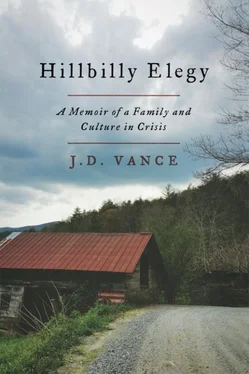
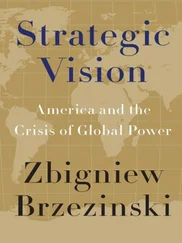

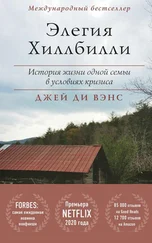
![Джей Вэнс - Элегия Хиллбилли [litres]](/books/399146/dzhej-vens-elegiya-hillbilli-litres-thumb.webp)
